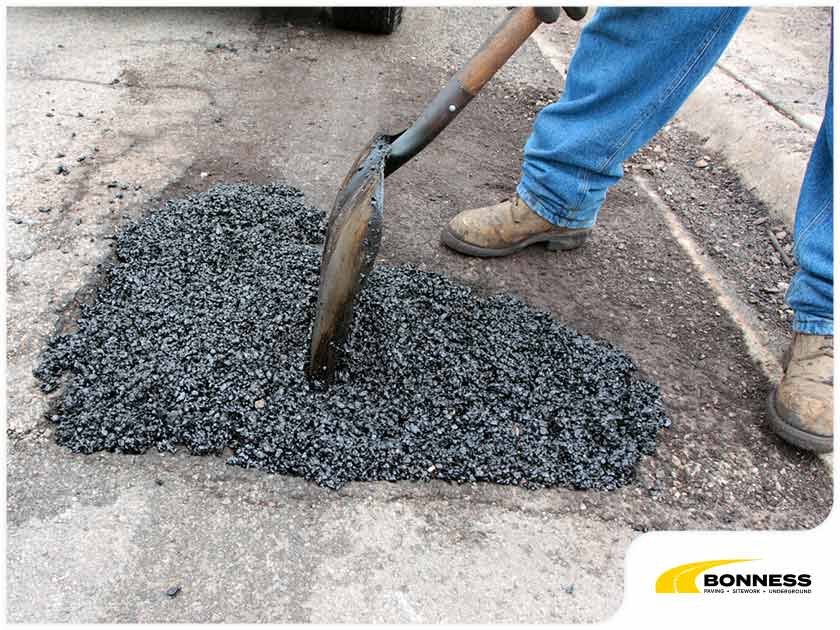
As with any other outdoor element, your asphalt paving has a natural life cycle. Roads and parking areas will reach a certain period when it will require repairs. Some paving issues can happen over the course of months or years while others can be sudden. If this occurs, you may want to consider asphalt patching as a repair solution.
However, this type of fix can lead to failure over time. Here are the common causes as to why this happens.
Low-Quality Soil
No matter how well installed or designed your pavement is, it will eventually fail if the underlying soil has structural issues. If poor soil is the culprit of your pavement issues, a simple repair job may not last long enough. Once this happens, the subsurface may already be in such bad condition that the new surface will deteriorate quickly.
To fix this, a paving expert may have to remove the pavement, mitigate the soil, put everything back together, and reinstall the pavement. The quality of the soil is first determined before any asphalt pavements can be installed on top of it.
Poor Design
Pavement design and fabrication are essential in every paving project. If it is of poor quality, your contractor may have likely chosen cheap options, or they didn’t know the right materials to use for the asphalt patching, leading to issues that start to manifest over time.
One of the most common examples of poor design is an inappropriate base course. The wrong base course can crack or erode, which can cause the pavement to deteriorate quickly. Additionally, combining porous and non-porous asphalt products can cause the asphalt patching to fail.
Cracks
Asphalt patching failure can lead to many types of cracks. Alligator cracks, for instance, refer to cracked surfaces that resemble reptile scales. This is the most serious issue that can harm your asphalt paving. If your surface or base is weak and thin, you may see alligator cracks on your pavement or driveway. It’s typically found at intersections where vehicles are parked for a long time.
On the other hand, slippage cracks have half-moon shapes with two ends pointed away from the direction of the traffic. New material can slip over the underlying material when it comes to this crack. This type of crack often occurs because there’s no bond between layers due to dust. To fix this, asphalt contractors will clean the base properly and put some material that grips the new material.
Turn to Bonness for top-notch asphalt paving and installation services. Our team of driveway professionals is happy to assist you with your asphalt patching issues. Call us today at (239) 597-6221, or fill out our online contact form to set an appointment.
